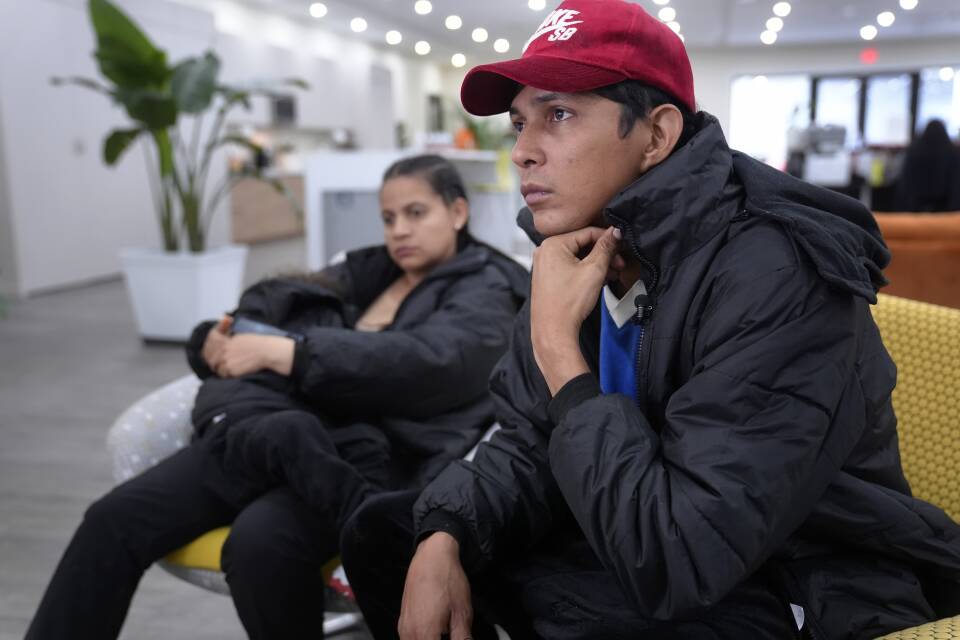Lawmakers in the Massachusetts House kick off debate Wednesday on a $58 billion spending plan for the fiscal year that starts in July, and the how lawmakers resolve the shelter crisis is emerging as a flashpoint for Republicans.
Shelter costs have soared amid an influx of migrants, asylum-seekers and other new arrivals to Massachusetts. The House’s budget would allocate $500 million to the shelter network next year, about half of what the Healey administration estimates it will cost.
Much of Beacon Hill’s focus over the past several months has been how to manage those costs while keeping shelters running, and House Republicans are trying to weigh in with a series of budget amendments that would prioritize Massachusetts residents for shelter space and change how the emergency housing program operates.
“Right now we have a system where if you get off a bus, plane, train, automobile, you're entitled to [shelter] benefits right out of the gate,” House Minority Leader Brad Jones told GBH News. “We think that makes Massachusetts too attractive, and we see the consequences of that.”
Massachusetts is the only state that guarantees shelter to eligible families with children and pregnant women, under a 1980s law. That law remains on the books, but the dynamics have changed.
Gov. Maura Healey last fall capped the shelter system at 7,500 families, with some others able to stay at overflow sites while waitlisted. The House and Senate have each approved a nine-month limit on shelter stays, but are still privately debating the nuances of that policy.
Jones, a North Reading Republican first elected in 1994, filed budget amendments that would pause refugee resettlement activity that pushes shelters past capacity, prioritize homeless veterans for shelter space, and create an oversight commission to review how the money gets spent. He said the climbing costs of shelters would limit the state's funding for other programs.
“That's going to mean that things that people want, need, or we've committed to are not going to be able to be funded, and I think that's going to create a real conflict,” Jones said.
Another GOP lawmaker, Rep. Paul Frost of Auburn, sponsored an amendment restricting eligibility to people who have lived in Massachusetts for at least three months, except for domestic violence victims or people affected by natural disasters within the state.
Democrats on Beacon Hill have generally resisted Republicans’ calls for shelter reforms. Because Republicans hold just 25 of the House’s 160 seats, they’ll need to convince Democrats to get on board for any changes to be adopted.
One Democratic lawmaker, Rep. Colleen Garry of Dracut, signed on in support of various GOP-backed shelter proposals. Garry also filed her own amendment that would redirect some of the money allocated for the shelter system to subsidies for public housing authorities.
The proposed shelter changes account for only a fraction of the nearly 1,500 amendments representatives filed. The vast majority — 73%, according to a Massachusetts Taxpayers Foundation analysis — would earmark funds for specific programs or projects.
Jones said adding lots of expensive amendments during the debate could “create a real red light on the budget.”
With state tax collections trailing expectations and flat revenue growth this year, top House Democrats stressed the importance of fiscal responsibility when they rolled out their budget proposal earlier this month.
House Speaker Ron Mariano, at the time, said House leaders hadn't “really talked about setting limits per se” when it comes to earmarks but would look at how those amendments fit “with the priorities that we've established in this budget.”
“We need to be consistent in our message on spending, and we intend to be,” the Quincy Democrat said. “I think if you analyze a lot of the earmarks that we will let go through the budget process, you'll see that there is an attempt to be consistent.”








